Nitto Lecture II of Japan Research Center of Shanghai Jiaotong University was held
On December 26, the second Nitto Lecture of the Japan Research Center of Shanghai Jiaotong University was held in the Oriental Hall of Liao Kaiyuan Law Building, Xuhui Campus, Jiaotong University. The event was hosted by the Japan Research Center of Shanghai Jiaotong University, sponsored by Nitto Electric (China) Investment Co., Ltd., and sponsored by the Shanghai Japan Society, Shanghai European and American Students Association, Shanghai Japan Research and Exchange Center, Japan Economic Research Center of Shanghai University of Foreign Trade and Economics The Japan Research Center of Fudan University, the East Asia Research Center of Shanghai University, the Shanghai Representative Office of the Japan Trade Promotion Agency and the Japan Chamber of Commerce and Industry in Shanghai are the backup units. The lecture invited Mr. Kazuki Katayama, Consul General of Japan in Shanghai, as the keynote speaker, with the theme of "Review and Outlook on China Japan Relations at the 40th Anniversary of the Conclusion of the Treaty of Peace and Friendship". Professor Wu Jinan, President of the Shanghai Japan Society and Chairman of the Academic Committee of the Japan Research Center of Shanghai Jiaotong University, Professor Wang Shaopu, Professor of the School of International and Public Affairs of Shanghai Jiaotong University and Advisor of the Japan Research Center, and Professor Hu Lingyuan, Director of the Japan Research Center of Fudan University, served as the speakers. The lecture was presided over by Professor Ji Weidong, Director of the Japan Research Center of Shanghai Jiaotong University. Director of Nitto Electric (China) Investment Co., Ltd., Great Wall Shengyi, Director of the General Business Strategy Department, Sato Longjiu, Director of the Business Planning Department, Wang Jian, Director of the Brand Strategy Department, Ding Jian, Secretary of the Party Committee of the School of Foreign Languages of Shanghai Jiao Tong University, and Deputy Director of the Japan Research Center, Oguri Daoming, Director of the Shanghai Office of the Japan Trade Promotion Agency, and Nakamura, Director of the Shanghai Japan Business Club Maruyuki, Vice Consul of the Consulate General of Japan in Shanghai, Chen Zilei, Director of the Japan Economic Research Center of Shanghai University of International Business and Economics, Ma Lizhong, Director of the East Asia Research Center of Shanghai University, and Lu Huihai, Director of the Shanghai Japan Research Exchange Center attended the lecture. The lecture attracted nearly 200 teachers, students and people from the industry.
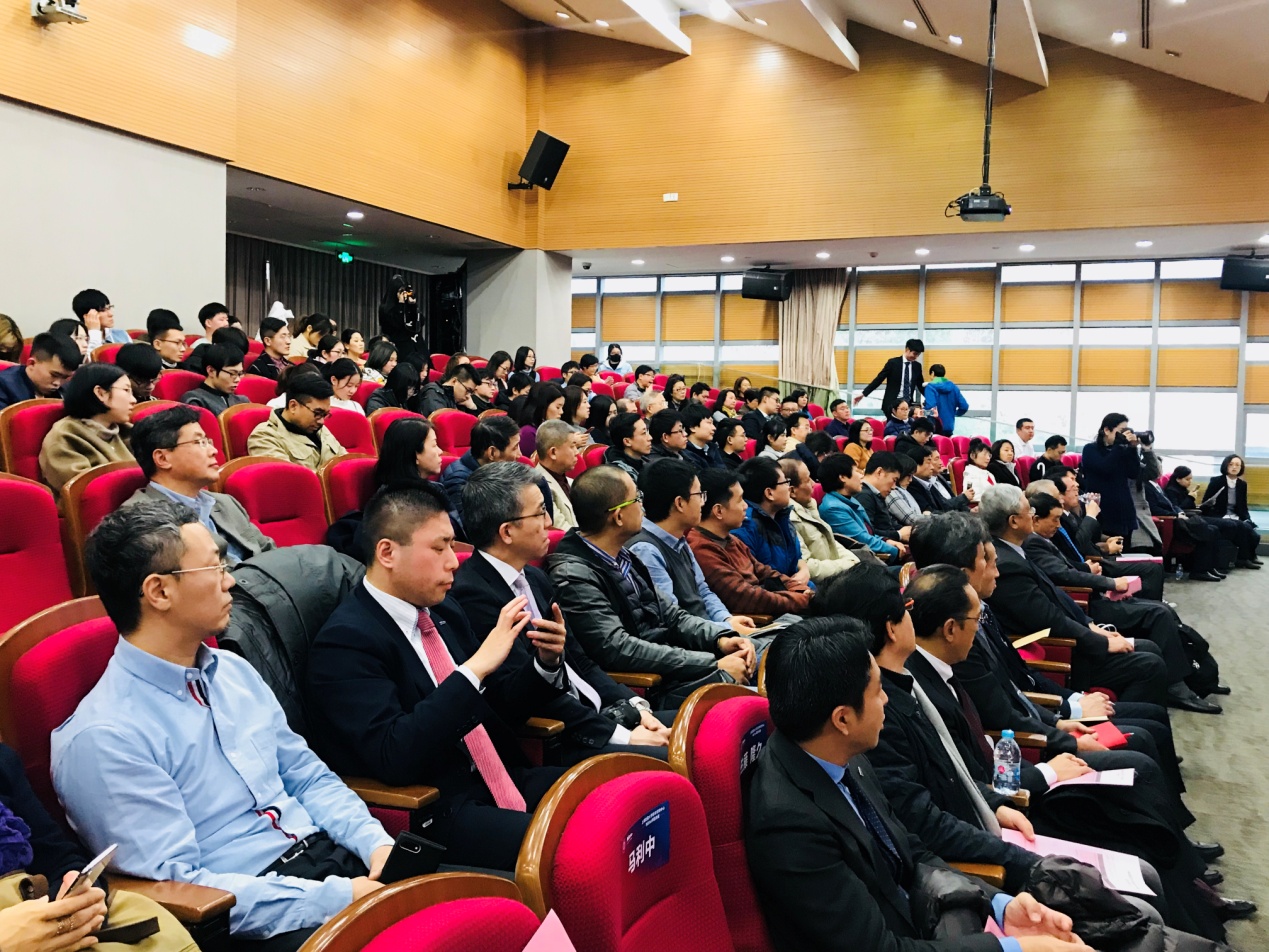
First of all, Director Ji Weidong extended a warm welcome to the guests. He briefly introduced the theme of the lecture and the keynote speaker, Mr. Kazuki Katayama, and expressed his vision of promoting academic exchanges between China and Japan through the Nitto special lecture.
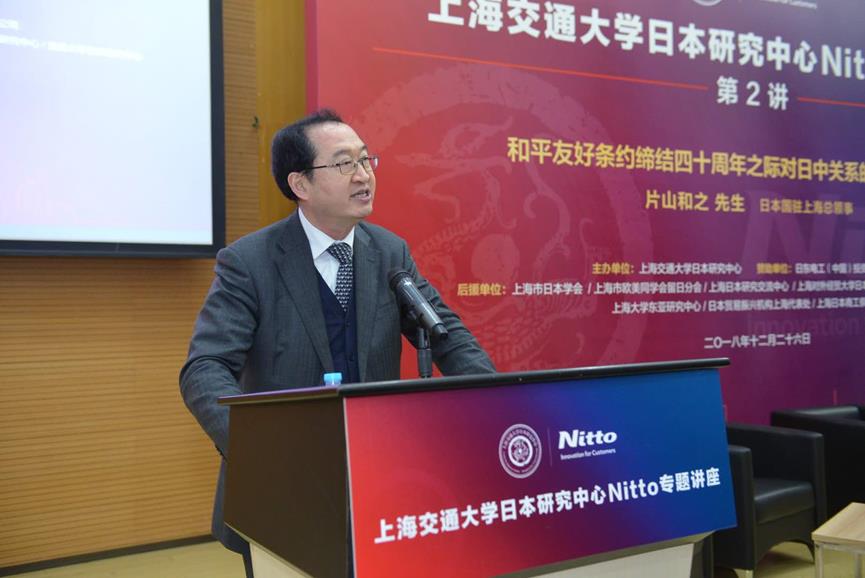
Chaired by Professor Ji Weidong
Mr. Katayama recalled in detail his 35 year career in the Ministry of Foreign Affairs and his personal experience related to China. He said that during his tenure as the Consul General of Japan in Shanghai, he personally experienced China's cashless, sharing economy, unmanned stores, express services, big data and other business forms that are ahead of Japan. He also reviewed China Japan relations on the 40th anniversary of reform and opening up and the 40th anniversary of the conclusion of the Sino Japanese Treaty of Peace and Friendship. He believes that the development of China's economy is the result of the joint efforts of every Chinese citizen, and it also proves that the direction of reform and opening up based on China is basically correct. It is beneficial to China, Japan, and even the world. Japan, which has been actively supporting China's reform and opening up, is correct in its judgment. He also pointed out that since 2012, China Japan political relations have gone through a difficult period. However, with the efforts of the people and governments of both sides, Premier Li Keqiang successfully visited Japan in May this year, and Prime Minister Abe made an official visit to China seven years after the Japanese Prime Minister in October this year, and deepened the cooperation in the field of private commerce in the third country and the exchanges between the two countries in youth culture. In addition, Mr. Katayama expressed some views on the more important factors for the stable development of China Japan relations in the future. First, China and Japan are neighbors that cannot escape from each other. China Japan economic relations have become a "community of common destiny". It is the most realistic choice for both sides to build a win-win and mutually beneficial strategic relationship. Second, he stressed the importance of public opinion diplomacy and promised that the Consulate General would issue as many visas as possible to qualified Chinese. Third, we should handle sensitive issues prudently and appropriately, strengthen communication, and avoid spreading individual political issues to economic, cultural, and personnel exchanges. Fourth, he said that the recent international situation is not optimistic. China and Japan have huge challenges in political, economic and other fields that need to be overcome through cooperation. When thinking about China Japan relations in the future, the foundation of bilateral relations is to build a "trust relationship".
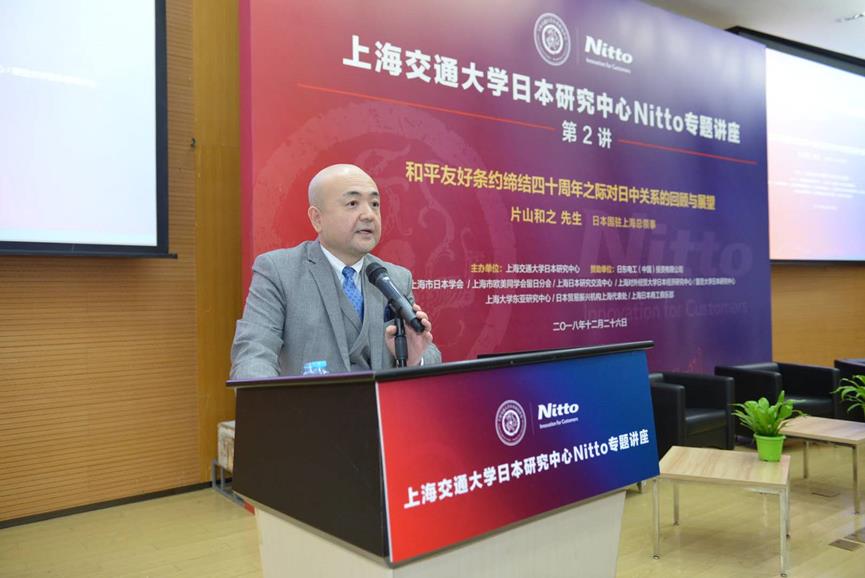
Mr. Katayama made a speech
After the speech, Professor Ji Weidong spoke highly of Mr. Katayama's various beneficial diplomatic efforts for China Japan economic and cultural exchanges during his five visits to China over the past 30 years, especially during the three years and four months as Consul General in Shanghai, and the idea of China Japan cooperation to maintain the world economic order mentioned in the speech, While praising Mr. Pianshan's linguistic attainments in the whole speech in Chinese, he also pointed out that the correct Chinese expression of the so-called "Senkaku Islands" is "Diaoyu Island", which caused the laughter of the audience.

Subsequently, a round table forum was held under the theme of "China Japan strategic and mutually beneficial relationship in the Shanghai perspective". Professor Wu Jinnan, Professor Wang Shaopu and Professor Hu Lingyuan participated in the round table discussion.

Panel Discussion
Professor Wu Jinan first thanked Mr. Katayama for his contribution to the peaceful and friendly development of China and Japan during his tenure, and spoke highly of Mr. Katayama's professionalism. He believed that the characteristics of China Japan relations this year are as follows: First, frequent exchange of visits by the heads of state indicate that China Japan relations have improved significantly in the near future; Second, the two countries have actively resolved sensitive issues, built a cooperation framework and jointly promoted the stability of the regional financial order; Third, deepen economic and trade cooperation and exchanges and actively carry out third-party cooperation. China Japan relations have greatly improved this year, which is inseparable from the efforts of the heads of state and people of peace and friendship of the two countries. Professor Wu Jinan also mentioned that the reform of the WTO has a profound impact on China and Japan, the regional economy and the world economy. China and Japan can take the upcoming G20 Summit as an opportunity to safeguard free trade and the multilateral trading system.

Professor Wu Jinnan made a speech
Professor Wang Shaopu shared the following feelings about Mr. Katayama's speech. First, he reviewed the ups and downs of China Japan relations in the past decade. Secondly, he described the important reasons for the changes in China Japan relations and highly affirmed the great role played by Consul General Katayama Hezhi in China Japan relations during his tenure in Shanghai. He also affirmed the significance of the anti hegemonism clause in international treaties and said that opposing hegemonism is the direction that all countries should work together in the future.
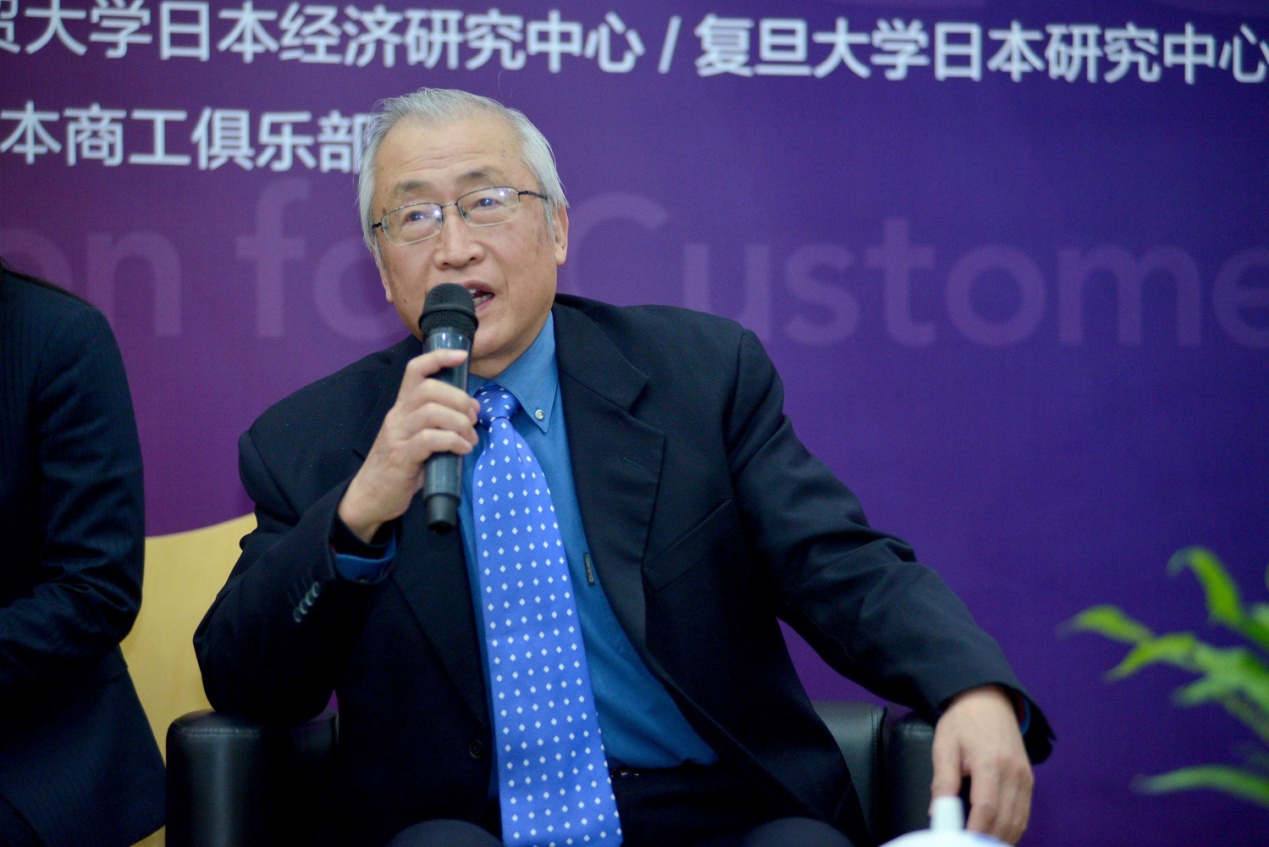
Professor Wang Shaopu gives a speech
Professor Hu Lingyuan briefly talked about his feelings about Mr. Katayama's speech. He said that at present, the structural problems between China and Japan are still "at sea". The sea passage is very important for Japan, and China's maritime power development is an extension of national economic development. Therefore, how to properly handle the East China Sea issue is of great significance to the relations between the two countries. At the same time, he spoke highly of Mr. and Mrs. Katayama's great contributions to the peaceful and friendly exchanges between China and Japan, and expressed his gratitude to Mr. and Mrs. Katayama for their support to the work of the Japan Research Center of Fudan University.
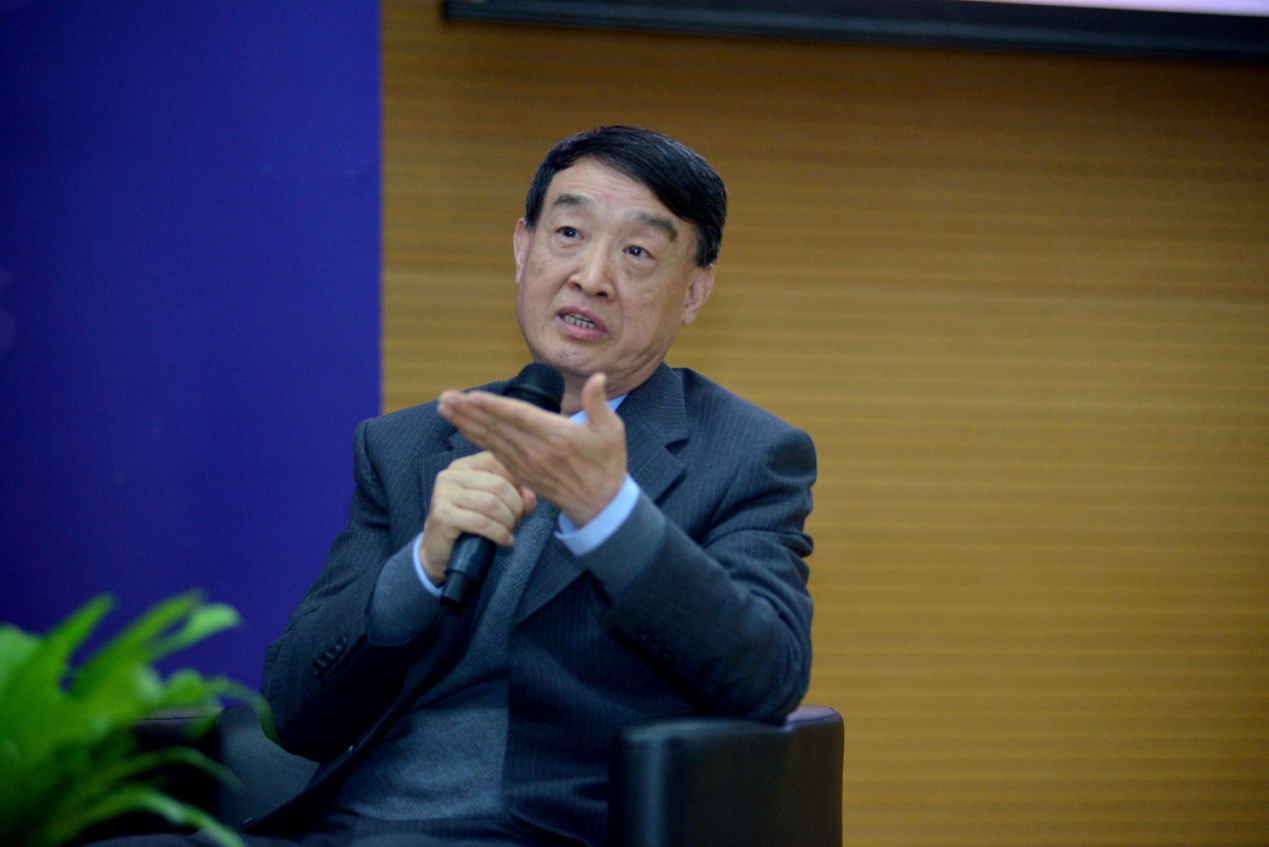
Speech by Professor Hu Lingyuan
Mr. Katayama responded to the comments of the three guests respectively. He believes that Shanghai is an economic center, which is very different from the atmosphere of Beijing as a political center. Being able to work in Shanghai is a very valuable experience. He also responded to the question raised by Professor Wu Jinan about the impact of the G20 Summit on China Japan free trade and the multilateral trading system. He believed that the current trade conflict between China and the United States not only had a negative impact on China US economic relations, but also affected other countries, including Japan. He hoped that China US trade issues could be properly resolved. Japan's economic development benefited from the post-war world free trade system, and China's economic development benefited from the close exchanges with other countries after the reform and opening up. China and Japan have common goals in using the multilateral trading system to achieve common development. Therefore, there is much room for cooperation between the two countries in using the opportunity of the G20 Summit to achieve further development. With regard to the East China Sea issue, he believed that at present, both countries have a distrustful attitude towards each other's behavior on this issue. Therefore, the two countries should adopt different ways of behavior than before to avoid misunderstanding of each other's intentions. Efforts should be made from the maritime scene to senior leaders to seek a correct understanding of each other's intentions. The two countries should put the overall situation first, calmly handle issues, and strive for common ground, So as to avoid any event that may cause political problems.

Mr. Katayama responded to guest comments
Finally, Director Ji Weidong and Deputy Director Ding Jian, on behalf of the Japan Research Center of Shanghai Jiaotong University, presented a certificate of thanks and souvenirs to Mr. Katayama. Mr. Katayama also took a group photo with the guests.

Issuing ceremony of thank-you certificate

Mr. Katayama took a group photo with the guests
It is reported that before the lecture, Mr. Katayama and Chairman Cheng Shengyi, Professor Wu Jinan, Professor Wang Shaopu, Professor Hu Lingyuan visited the Japan Research Center of Shanghai Jiaotong University. After the lecture, Jiang Sixian, Secretary of the Party Committee of Shanghai Jiaotong University, met with Mr. Pian Shanhezhi, Chairman Cheng Shengyi, Professor Wu Jinnan, Professor Wang Shaopu, and Professor Hu Lingyuan in the VIP Room on the second floor of the General Office, and had an interview and exchange.
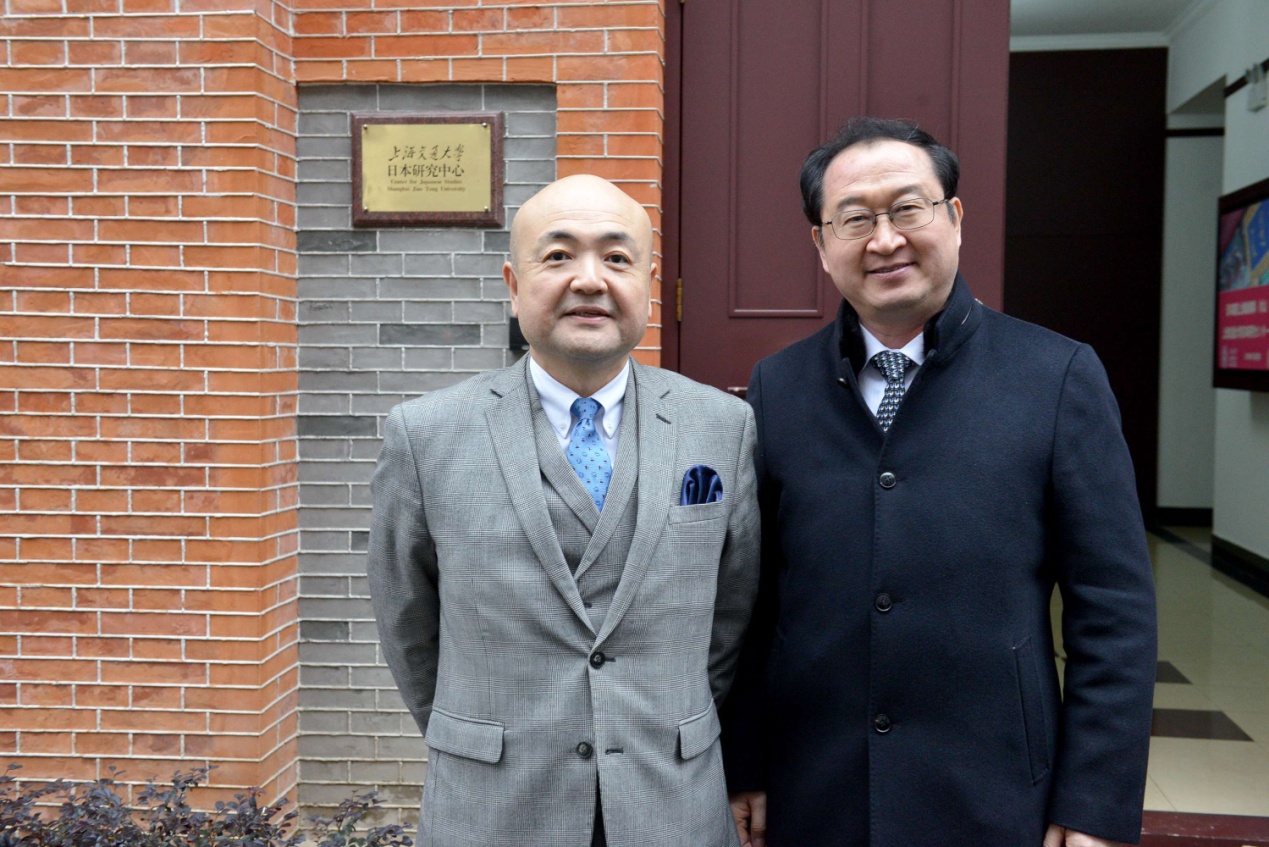
Group photo of Japan Research Center
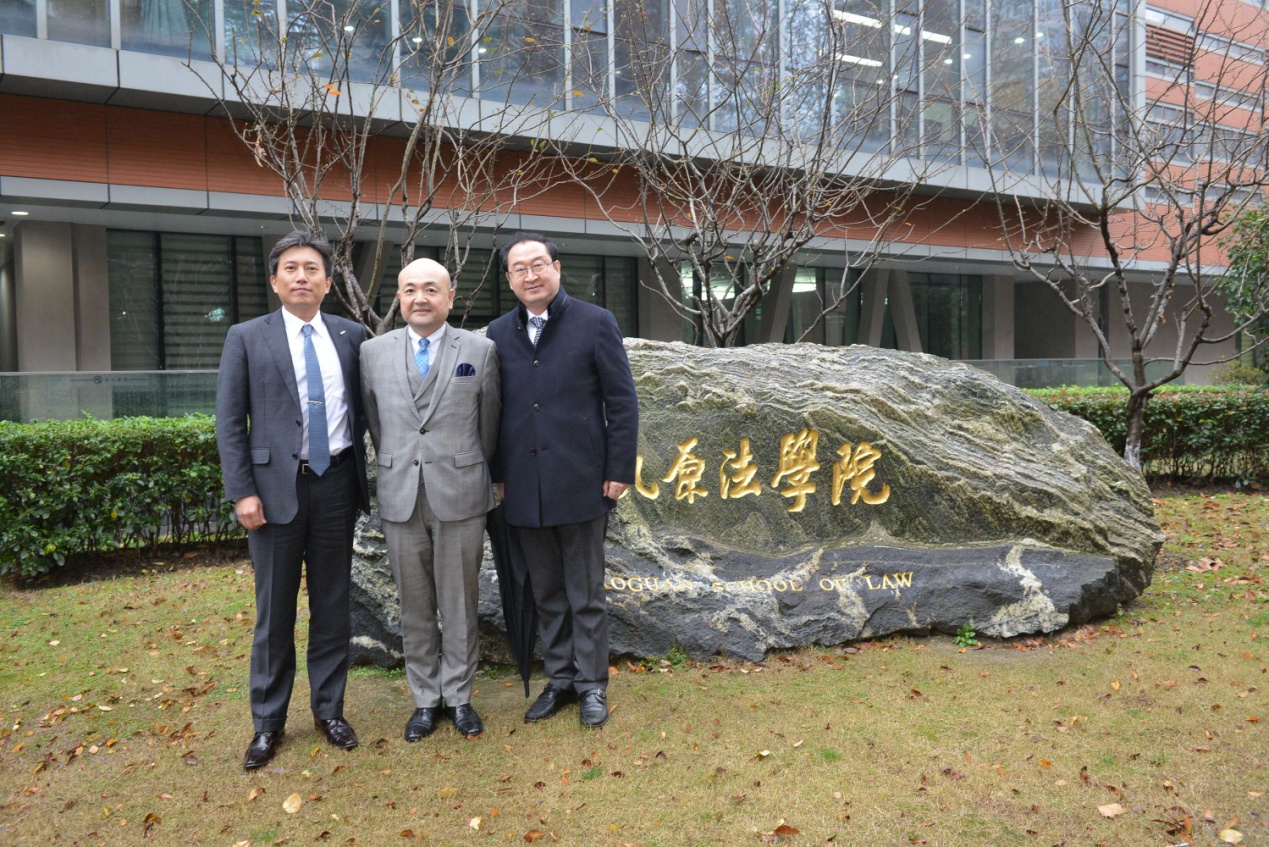
Group photo of Koguan School of Law